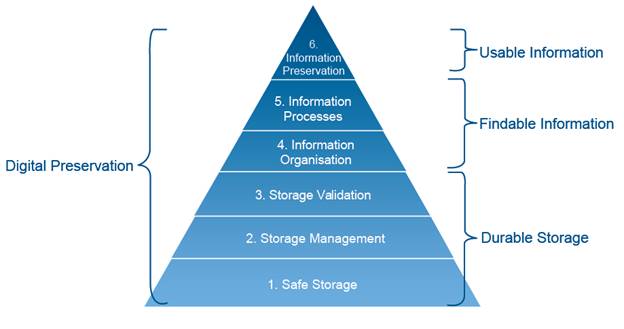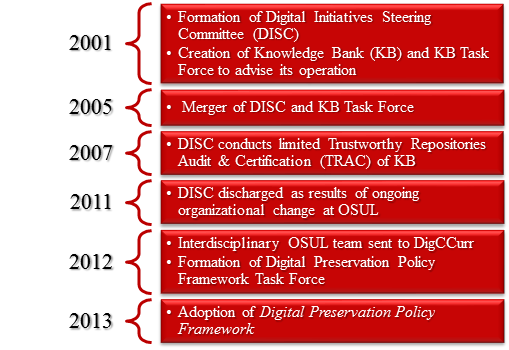The
records management practices in
capturing organizational memory
By : Alwi Mohd Yunus
Faculty of
Information Management
Universiti
Teknologi MARA
Shah Alam
Selangor, Malaysia
Records management is an integral part of the organization work processes. Without records, organization faces the consequences of loosing their transactional evidences, proof of conducts, facing probable litigation, and historical memory of its conduct. Nit only limited to that, organization faces losing valuable information in the form of knowledge, best practices and lesson learnt from its daily conduct (explicit knowledge) and its human capital (tacit knowledge). Hence, it is important for organization to strive in managing its records and play critical role in identifying and capturing its knowledge into records and maintaining them accordingly, and by doing so safeguarding the organization’s intellectual assets, moving human capital into structural capital. Nonaka emphasizes that knowledge especially tacit knowledge is a main source for creating new knowledge and continuous innovation. The need for, and ability of, organizations to capture tacit knowledge remains a disputed academic issue. Considering Nonaka’s hierarchy of data, information and knowledge, the need for an effort to capture knowledge seems to be a fair and logical conclusion. Making the case for capturing tacit knowledge, this paper goes on to discuss some of the implications for records management and records managers. There are no easy solutions on offer for the successful capture and re-use of knowledge but questions are raised about the role of records managers. Developing relevant skills and taking responsibility for helping organizations with this strategic goal, thereby contributing to some core aspirations of employers, should be an exciting prospect and worthwhile activity. Since information and knowledge management is encompassing to every aspects of data, information and knowledge in organization, one has to look at the practices of records management and its relation to knowledge management holistically as a continuous efforts and processes of capturing critical knowledge be it tacit or explicit knowledge possessed or owned by organization. Within this context, the practices of records management and knowledge management varies from achieving better organizational administration to producing innovative products and better services. It is tantamount to say that records management play a critical role in the operation of administrative work of an organization. Records bring evidence in organizational transactions. And not only limited to that, records is the source of organizational information and knowledge. It is where the documented lesson learnt, best practices, expert documentation and past mistakes are referred to in learning organization. Whereby, within the context of knowledge management, records is prime resource for organizational improvements in operations, development of innovative products and services thus adding value to organizational knowledge asset. However, the practices of records management initiatives in organizational context, knowledge management initiatives and knowledge capturing specifically is yet to be determined. This is due to the fact that records management by itself is an ignored aspect in organization, and not focused on dollar and cents rather on intangible benefits to organization. Therefore, it requires in depth study with regard to the practices of records management in relation to knowledge capturing. The relationship between the practices of records management in the process of knowledge capturing in organizational context is due to be explored. This study looks into deeper understanding of the function of records management practices in knowledge capturing activity. It seeks to explore the neglected but critical functions played by records management in identifying explicit knowledge and turning tacit knowledge into explicit knowledge by way of documenting it and keeping it as corporate memory of an organization.



